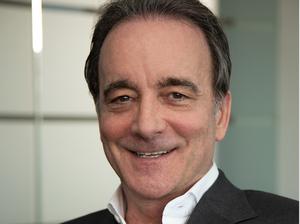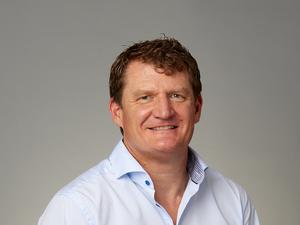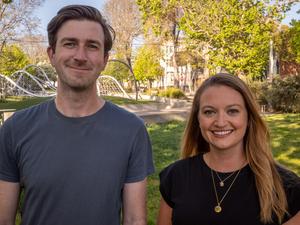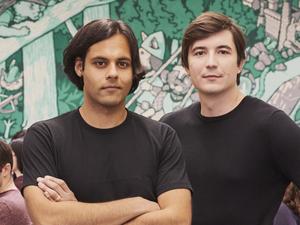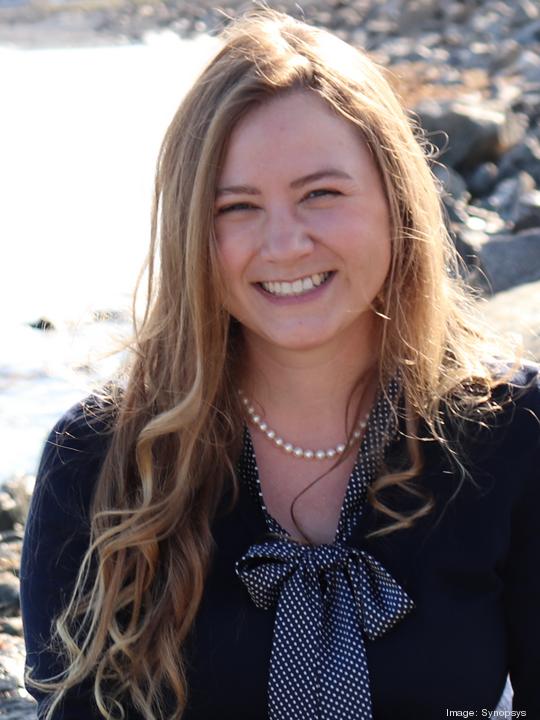
Entrepreneurship abounds in Silicon Valley. But what should people know about starting companies before taking the leap?
There are certainly lots of lessons aspiring founders can draw on, including everything from how to find a startup idea to what to expect in the early days of running a new company, a pair of speakers at the Silicon Valley Leadership Group's Startup Story Roundtable made clear Monday. But the most important thing people who are undecided about becoming entrepreneurs should know is that it can be a lot of fun, one of the speakers, Ainsley Braun, said at the online event.
"I think giving people that luck and giving them that sense of serendipity is going to help more people come to entrepreneurship," said Braun, a former startup founder who is now a director of product management at Synopsys Inc. "Entrepreneurship is not for everybody ... but you're not going to know it unless you try it."
Braun and her fellow speaker, Sasha Seletsky, shared their experience with and perspectives on founding companies at the event, answering questions about the challenges and rewards. Among the things they discussed were the importance of serendipity and experimentation, of putting together the right founding team and understanding team members' strengths, and of being able to tap into professional and social networks.
Braun was spurred to entrepreneurship by being unhappy in her job. She was working as a government contractor, doing security consulting as well as user-experience design for the Department of Defense. But she felt like the job wasn't fulfilling her desire to be constantly learning new things. So in 2011, she decided to leave and co-found Tinfoil Security Inc, which tapped into her security expertise.
Before making the leap, she analyzed the market to see what needs weren't being met. Then she did a lot of experimenting to see if she could attract customers.
"I ended up putting a whole bunch of landing pages together, testing our ideas, and seeing what resonated with people," she said at the startup event.
Braun learned about working with people
She and her co-founders ended up building a startup that had a successful outcome. Synopsys Inc. acquired Tinfoil in January of 2020.
Along the way, she learned a lot about working with people, she said. One important lesson was that the founding team needs to be on the same page in terms of what success and failure look like. Another was to recognize people's value and their often hidden potential, she said.
"It was really interesting to see how someone who might be a college dropout, not a trained engineer, or someone who's not skilled in something can grow into that," Braun said.
Founding and running a company can be stressful. That's why it's crucial to be able to take a step back and put things in perspective, Braun said.
One way she tried to do that was by thinking of life and her work as a game, she said.
"You just have to treat life like a little bit of a game and have a bit more fun than you might have otherwise," she said.
Seletsky's founder story involved a different kind of serendipity than Braun's.
Early last year, he was three to four weeks into what he had planned to be a nine-month career sabbatical when the Covid-19 pandemic hit. Recognizing there was a need for a faster and cheaper form of coronavirus testing, he got together with some contacts who had a background in automation to launch a startup that would develop a better test. They formed SummerBio LLC, which pioneered a way to process a large number of tests at a low cost.
"We just said in times of crisis, we need to step up and help," he said at the event.
Seletsky network offered lots of help
Although entrepreneurship can often look or feel like a solitary or cloistered activity, aspiring founders should realize and take comfort in the fact that they're not alone, that they have friends and professional contacts they can lean on, Seletsky said.
That realization was something that surprised him in starting up SummerBio, he said. At one point the company was short on reagents, which are substances that cause chemical reactions and are key ingredients in coronavirus testing kits, Seletsky said. Through his network he was able to connect SummerBio with a source for reagents, he said.
"Everyone coming together to help out was just amazing," Seletsky said. "You didn't even realize how much of a network you had until you started asking for help."
Another lesson he's learned as an entrepreneur is to not to get too used to doing things a certain way, he said.
"I see myself having to check my assumptions pretty regularly," Seletsky said.
He also offered a word of warning. Early-stage startups often experience a culture shift at some point, and those can be challenging to overcome, he said.
SummerBio, which has raised $7.3 million in venture funding, according to PitchBook Data, experienced one itself, he said. Among its seven-member founding team, more than half returned to their prior jobs within three months of helping launch the startup, he said.
"Something like culture takes so much longer to rebuild than it does to break," Seletsky said.
That's why it's critical for founders to focus early in their companies' lifecycles on hiring the right people, he said. If a startup has the right team, it can overcome big problems, such as developing the wrong product, he said.
The early hires "have an amplified impact on what the rest of the company looks like," Seletsky said.
